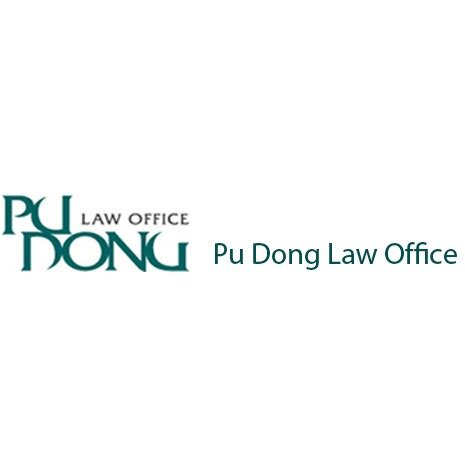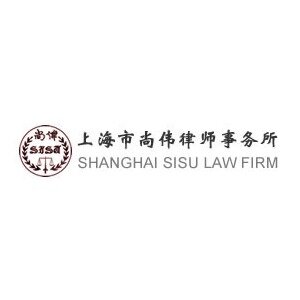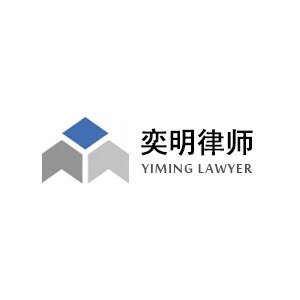Best Civil Rights Lawyers in China
Share your needs with us, get contacted by law firms.
Free. Takes 2 min.
Or refine your search by selecting a city:
List of the best lawyers in China
About Civil Rights Law in China
Civil Rights in China encompass a range of rights that are meant to protect individuals from unfair treatment, ensure social justice, and promote equality. While the rights to equality, speech, and assembly are stipulated in the Chinese Constitution, their practical enactment can be complex due to existing political structures and administrative practices. In recent years, there have been several reforms to enhance legal frameworks around civil rights, although challenges remain in enforcement and public awareness. The scope of Civil Rights Law in China covers issues such as discrimination, privacy, freedom of expression, and access to legal recourse.
Why You May Need a Lawyer
There are several scenarios where one might require legal assistance in civil rights issues, including:
- Experiencing discrimination based on gender, ethnicity, or disability.
- Having your freedom of speech or assembly unjustly suppressed.
- Facing illegal detention or deprivation of personal freedom.
- Pursuing justice for breaches of privacy or data security.
- Needing to navigate the complexities of social and economic rights, such as housing and healthcare.
Legal professionals specializing in civil rights can provide guidance on asserting your rights, represent you in legal proceedings, and help in filing complaints or appeals.
Local Laws Overview
China’s legal system is undergoing constant evolution, with several laws relevant to civil rights including:
- Constitution of the People’s Republic of China: Outlines fundamental civil rights such as freedom of speech and equality before the law.
- Administrative Procedure Law: Allows citizens to challenge administrative acts infringing on their civil rights.
- Labor Law: Protects workers' rights against discrimination and unlawful treatment in the workplace.
- Law on the Protection of Women’s Rights and Interests: Specifically addresses gender equality and protects women from discrimination and violence.
- Cybersecurity Law: Contains provisions on privacy protections and personal data security.
While these laws are comprehensive, understanding the local judicial process and enforcement can require specialized legal interpretation.
Frequently Asked Questions
What rights are guaranteed under the Chinese Constitution?
The Chinese Constitution guarantees several rights including equality before the law, freedom of speech, press, assembly, association, and personal freedom. However, their realization is aided and constrained by various state policies and legislation.
How can I report a violation of my civil rights?
Violations can be reported to local authorities or specific departments aligned with the nature of the complaint, such as the Human Rights Council in China or the relevant administrative bodies.
Are there any protections against discrimination in employment?
Yes, the Labor Law and other regulations prohibit discrimination based on ethnicity, gender, religion, and disability. Employers are obligated to maintain fair practice and equal pay.
Do I have the right to protest in China?
While the right to assembly is recognized, public demonstrations are tightly regulated and require official approval. Unauthorized gatherings could face legal penalties.
How are privacy rights enforced in China?
Privacy rights are protected under the Cybersecurity Law and Personal Information Protection Law, which regulate the collection and use of personal data. Breaches can be pursued through relevant legal channels.
Can foreigners claim civil rights in China?
Foreigners in China are subject to local laws and can claim certain rights, although their scope is often more limited compared to Chinese citizens.
How accessible is legal aid for civil rights issues?
Legal aid services, often provided by law firms, non-profit organizations, and government bodies, aim to assist marginalized and financially disadvantaged groups.
What are my rights if detained by authorities?
You have the right to be informed of charges, to remain silent, and to consult with legal representation. Unlawful detentions can be challenged in court.
Are there specific laws protecting internet freedom in China?
The Cybersecurity Law regulates online content and imposes restrictions on internet use, influencing both freedom and security online.
What should I do if I face discrimination in public services?
You can file a complaint with the relevant government department or seek legal advice to pursue further action. It's crucial to document instances meticulously for legal proceedings.
Additional Resources
The following resources can provide further assistance:
- Local Law Firms: Specializing in civil rights issues.
- Human Rights Council of China: Oversees the implementation of human rights policies and addresses grievances.
- Legal Aid Centers: Provide free legal services to eligible individuals.
- Non-Governmental Organizations (NGOs): Such as All-China Women’s Federation and China Disabled Persons’ Federation, offer support to vulnerable groups.
Next Steps
If you need legal assistance regarding civil rights in China, consider the following steps:
- Identify the Issue: Clearly understand the nature of your rights concern.
- Gather Documentation: Collect any evidence or documentation related to your case.
- Seek Legal Consultation: Contact a lawyer or legal clinic specializing in civil rights.
- Prepare for Proceedings: Your lawyer will guide you through preparing and filing necessary legal motions or complaints.
- Stay Informed: Follow up on changes in local laws and procedures that may impact your case.
Engaging with a knowledgeable legal professional can significantly aid in navigating the complex legal landscape of civil rights in China.
Lawzana helps you find the best lawyers and law firms in China through a curated and pre-screened list of qualified legal professionals. Our platform offers rankings and detailed profiles of attorneys and law firms, allowing you to compare based on practice areas, including Civil Rights, experience, and client feedback.
Each profile includes a description of the firm's areas of practice, client reviews, team members and partners, year of establishment, spoken languages, office locations, contact information, social media presence, and any published articles or resources. Most firms on our platform speak English and are experienced in both local and international legal matters.
Get a quote from top-rated law firms in China — quickly, securely, and without unnecessary hassle.
Disclaimer:
The information provided on this page is for general informational purposes only and does not constitute legal advice. While we strive to ensure the accuracy and relevance of the content, legal information may change over time, and interpretations of the law can vary. You should always consult with a qualified legal professional for advice specific to your situation.
We disclaim all liability for actions taken or not taken based on the content of this page. If you believe any information is incorrect or outdated, please contact us, and we will review and update it where appropriate.
Browse civil rights law firms by city in China
Refine your search by selecting a city.












